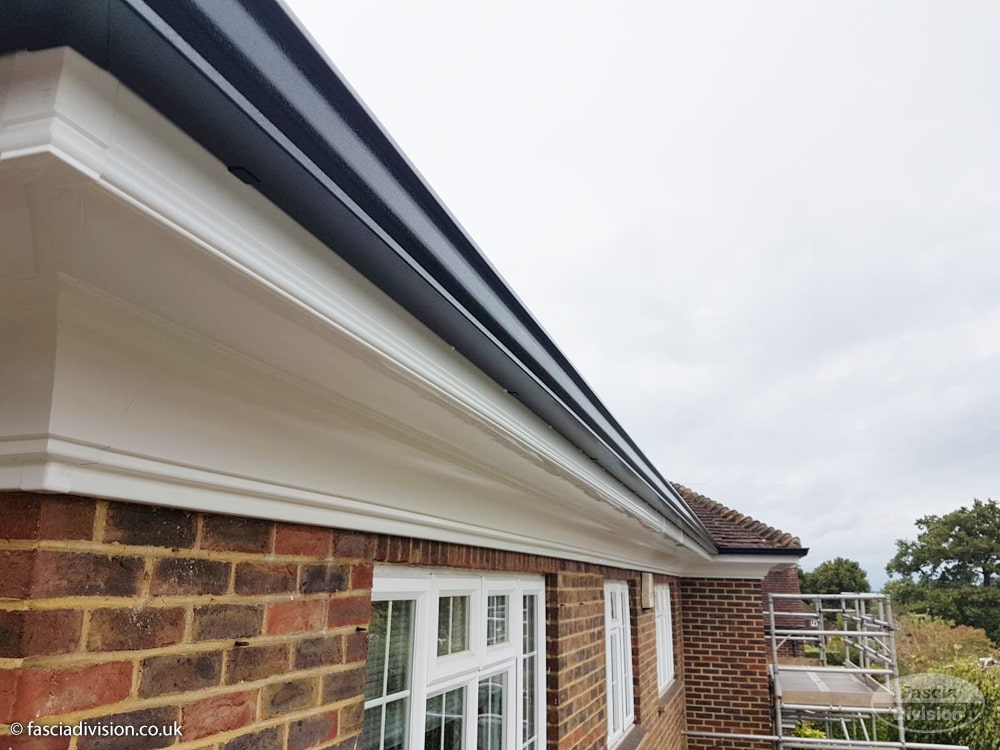This company has no active jobs
0 Review
Rate This Company ( No reviews yet )
Something About Company
What’s Holding Back This Timber Fascias Industry?
Understanding Timber Fascias: Design, Benefits, and Maintenance
Timber fascias play an essential function in the architectural visual appeals and structural integrity of a building. These horizontal boards installed at the edge of roof eaves not just enhance the visual appeal of a structure but also serve useful functions essential for its longevity. This post dives into the significance of timber fascias, the product choices offered, and necessary maintenance practices to guarantee they stand the test of time.
What is a Timber Fascia?
A timber fascia is a long, straight board that runs along the roofing’s edge, normally below the overhanging edge of the roof. It is typical in both domestic and business structures and is often painted or stained to match the overall architectural design. By covering completions of rafters and offering a finished look to the roofline, timber fascias boost curb appeal while offering considerable practical advantages.
Secret Functions of Timber Fascias:
-
Protection of Roof Structures: Timber fascias prevent wetness from going into the roof system, protecting rafters and underlayment from decay and rot.
-
Visual Appeal: The fascia board offers an ornamental surface to the structure, connecting the general style style.
-
Support for Gutters: Fascias supply an anchor point for gutter systems, making sure the safe and efficient drainage of rainwater.
-
Vermin Deterrent: By covering the rafter ends, fascias help to keep critters from nesting in cavities that could form in the roofing system’s structure.
Material Options for Timber Fascias
When choosing products for timber fascias, a number of options are available, each with unique advantages. Below is a breakdown of the most common materials used:
| Material | Benefits | Drawbacks |
|---|---|---|
| Softwood | Economical, lightweight | Prone to warping and decay if untreated |
| Hardwood | Durable, thick, and aesthetically pleasing | More costly, heavier to deal with |
| Engineered Wood | Resistant to wetness and insects | Minimal natural appearance compared to strong wood |
| Composite | Long lasting and low maintenance | Can appear less genuine in design |
Advantages of Timber Fascias
Timber fascias offer various advantages that contribute to both functionality and aesthetic appeals. Here are a few of the primary benefits:
-
Aesthetic Versatility: Timber fascias can be stained, painted, or left natural to match a building’s design.
-
Sustainability: The usage of properly sourced timber can add to sustainable structure practices.
-
Reduce of Installation: Timber fascias are fairly simple to set up, making them a popular option amongst contractors and contractors.
-
Personalization: Timber can be quickly shaped and cut to fit special architectural styles.
-
Insulation Properties: Timber has natural insulation properties, assisting improve the energy efficiency of a home.
Maintenance of Timber Fascias
While timber fascias are attractive and functional, they do require regular maintenance to guarantee durability. Below are necessary maintenance suggestions to keep them in prime condition:
-
Regular Inspection:
- Check for indications of decay, rot, or damage at least two times a year, particularly after serious weather condition.
-
Cleaning:
- Clean the fascias with a soft brush or cloth to get rid of dirt, grime, and mildew. Avoid using extreme chemicals that can harm the finish.
-
Protective Coating:
- Reapply protective finishes, such as paint or stains, every number of years to preserve appearance and safeguard wood from wetness.
-
Seal Cracks:
- Fill any fractures or spaces to avoid moisture ingress, which can cause wood deterioration.
-
Inspect for Pests:
- Look for signs of insects, such as woodpecker holes or insect trails. Without delay deal with any problems to prevent structural damage.
FAQs About Timber Fascias
Q1: What wood species are typically used for timber fascias?A1: Commonly used wood
types consist of pine, cedar, and redwood due to their sturdiness and appealing appearance. Q2: How frequently do I need to maintain Repair My Windows And Doors timber fascias?A2: Regular assessments ought to be done at least biannually, with cleansing and protective covering checks carried out every 1-3 years depending upon the wood type and finish. Q3: Can I install timber fascias myself?A3: While knowledgeable DIY enthusiasts might be able to set up timber fascias, it is advised to hire a professional for ideal outcomes, particularly concerning fitting and sealing. Q4: What surfaces are best for timber fascias?A4: Weather-resistant paints and discolorations that permit the wood to breathe are advised to safeguard versus moisture and UV damage.Q5: Are timber fascias ecologically friendly?A5: When sourced from sustainably managed forests, timber fascias can be an eco-friendly building alternative. Timber fascias are not simply visual additions to your home’s architecture
; they are important components that protect important roof structures and boost overall charm. Understanding the material choices, benefits, and maintenance requirements will assist homeowners and
builders in making notified decisions. By investing time and care into timber fascias, one can guarantee their continued functionality and visual appeal for years to come.


